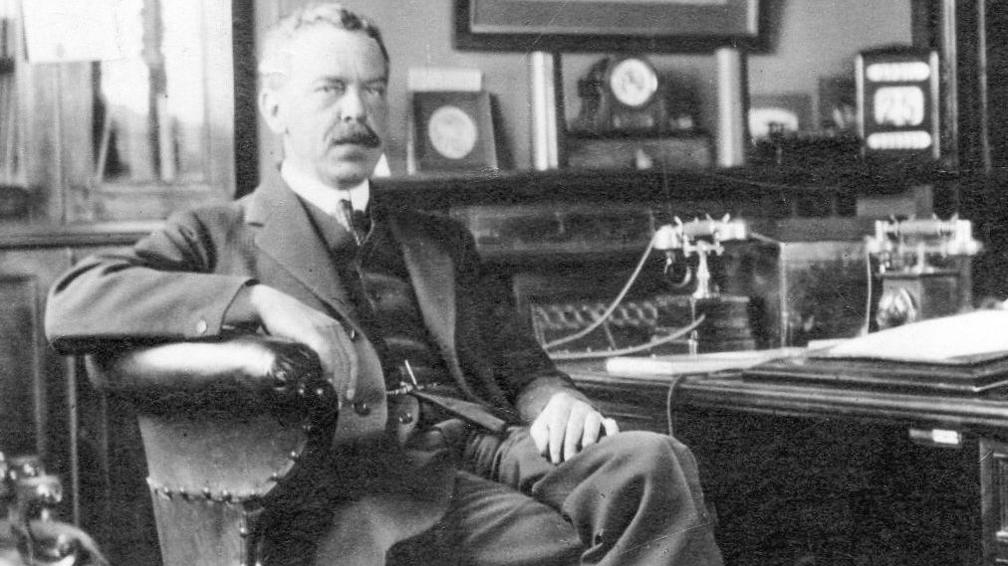Flying Scotsman creator honoured in new exhibition

Sir Nigel Gresley, pictured at his desk in Doncaster, is to be celebrated in a new exhbition in the city
- Published
The man behind world famous steam locomotives such as the Flying Scotsman is to be honoured in the South Yorkshire city where his creations were built.
A new exhibition in Doncaster which opens next month will celebrate the life of Sir Nigel Gresley, who also designed The Mallard among several other locos.
The exhibition's organisers said it would also remember the "unknown" people in the city who worked with the pioneering designer to make his ideas a reality.
Philip Benham, from the Gresley Society, said it was "fitting to see the achievements of Flying Scotsman's creator commemorated".

The 97-tonne Flying Scotsman paid a visit to Doncaster in 2023 and was welcomed by crowds of people
Gresley: Genius of Steam & Speed is to be held exactly 100 years after the British Empire Exhibition opened at Wembley Stadium in 1924.
Flying Scotsman was one of the stars of the show and helped the loco become known around the world.
The 97-tonne engine was built in the LNER works in Doncaster in 1923 and was used to pull a non-stop express service between London and Edinburgh.
In 1934, it became the first British steam locomotive to break the 100mph (161km/h) barrier on a test journey between Leeds and London.
Meanwhile, the Gresley-designed and Doncaster-built Mallard hit 126mph (203km/h) in 1938, breaking the world speed record for a steam locomotive.

Sir Nigel Gresley was also the man who designed the record-breaking Mallard steam locomotive
The new exhibition will include some of Sir Nigel's letters and hand-written notes, along with artefacts including his hat and passport, organisers said.
One of the lesser-known people to work closely with Sir Nigel was Doncaster man Harry Harper.
As his personal assistant, Mr Harper was entrusted with Sir Nigel's personal notebooks and papers which are a central part of the exhibition.
Philip Benham, chairman of the Gresley Society said: “One hundred years on from the event that first thrust the world’s most famous locomotive into the limelight, it is fitting to see the achievements of Flying Scotsman’s creator commemorated in this wonderful exhibition.
"It is all the more appropriate that it is being held in Doncaster, where so many of Gresley’s achievements took place.”
Follow BBC Yorkshire on Facebook, external, X (formerly Twitter), external and Instagram, external. Send your story ideas to yorkslincs.news@bbc.co.uk.